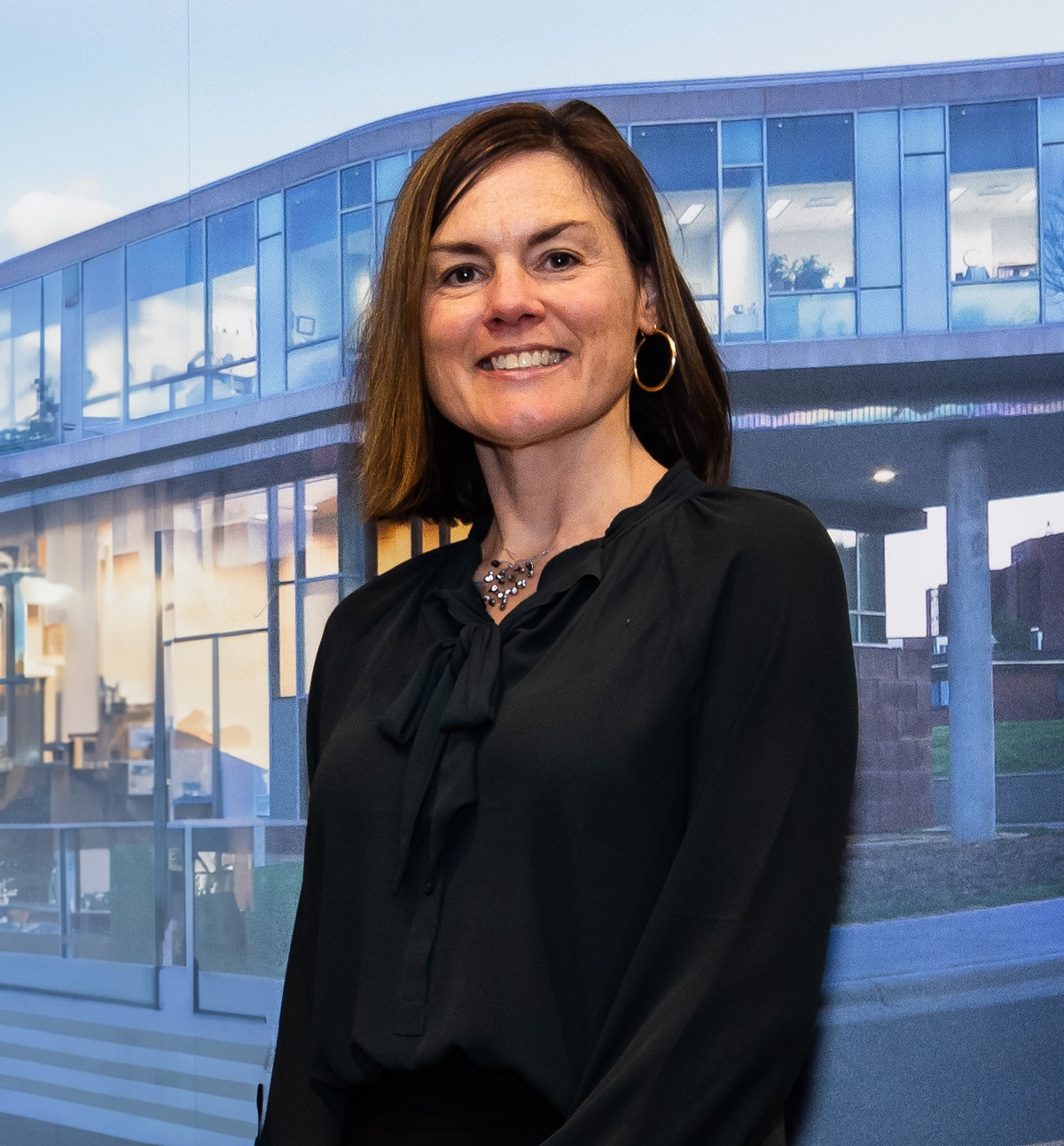LSBE instituted the fellowship program in 2022, which is named for former LSBE Dean Knudsen who served from 1998 to 2013. Being awarded a fellowship allows a faculty member to teach one less class than they normally would to pursue a passion project that would benefit LSBE.
Dauner has been working on exploring ways in which small businesses and non-profits could partner with LSBE to better connect with classes for mutual benefit.
“I have been working with community partners within my own classes for close to 10 years,” said Dauner. “Having been here a while, I have had a chance to think about how LSBE could support faculty who want to create experiential learning opportunities—service learning and class-community partnerships—for their students.”
Dauner’s first stage has been collecting insight from LSBE’s faculty, students, and staff; local business groups, and UMD’s Public Engagement Coordinator Cheryl Skafte. She’s also researched what other business schools are doing.
“We also can capitalize on opportunities that might be created at the university level through UMD's recent Carnegie Community Engagement designation and the hiring of Skafte. Additionally, faculty and staff within UMD who are already doing this work can support each other’s efforts.
“Experiential learning is a high-impact practice,” said Dauner. “Research tells us students learn a lot through working on real-world projects. LSBE already engages in high-impact practices really well—internships, the passport program, the Financial Markets Program, the Week of Service, and many others. Supporting more classroom-based experiential learning—service learning and class-community partnerships—will complement things faculty already are implementing in their curriculum.
“However, it can take a lot of time to locate a community partner who wants to partner with a class and would benefit from the partnership. And, as with any relationship, there needs to be ongoing communication and feedback. Partnering is a collaboration between a faculty-led class and an external entity that is mutually beneficial. Generally, this means that the partner (a non-profit or small business) receives information or a product (like a data analysis or marketing plan) that helps them advance their organizational goals. Through this, students meet the faculty member’s learning objectives for the project.
“There are some faculty who have already chosen to engage in community-class collaboration, but LSBE could do much more in this area successfully like they have in others.
“My end goal is to have a plan to systematically incorporate greater experiential learning opportunities within LSBE,” said Dauner. “The plan can then be used to identify and obtain resources to support these opportunities.” She also is assembling a support and resources aid for faculty.
The timeframe to complete her fellowship is July, though Dauner would like to stay connected to the project after she finishes with it.
“I am passionate about this topic, so I hope to stay involved in some way, as plans hopefully turn into reality.”
